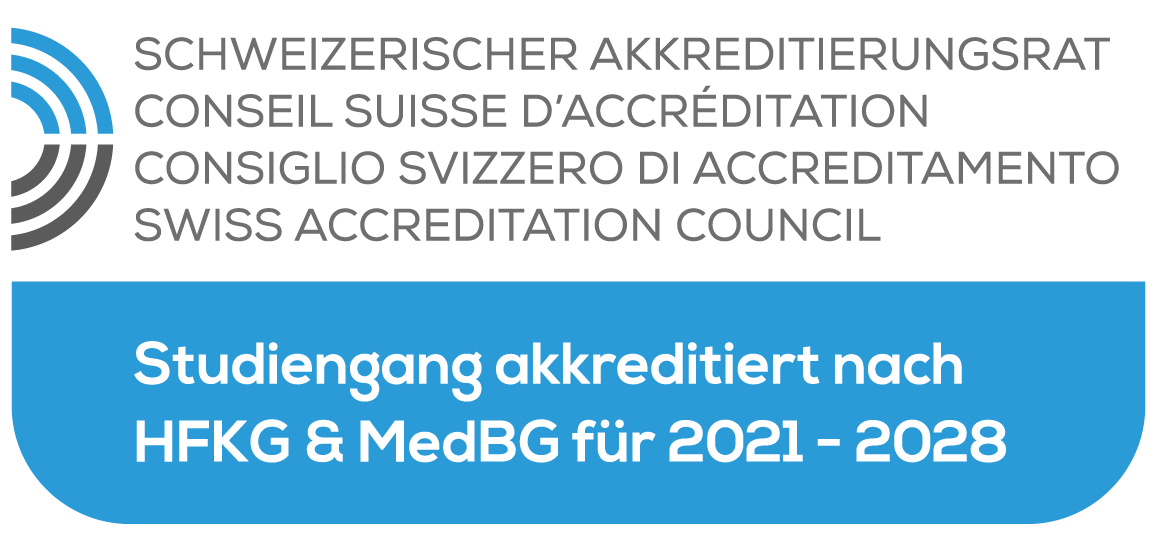Master in Human Medicine
The study programme is based on the criteria laid down at federal level in PROFILES (Principal Relevant Objectives and Framework for Integrative Learning and Education in Switzerland)
Master of Medicine
Study languages
German and French
Programme structure
180 ECTS credits 6 semesters
Start of studies
September

-
Study programme
In addition to the general requirements of the Swiss Confederation for all degree programmes in human medicine, which are set out in the PROFILES skills catalogue, the Master's degree programme in Fribourg focuses on additional topics that take into account the dynamic environment of tomorrow's medicine. These are family medicine, the development of professional behaviour, needs-based and population-oriented medicine with social responsibility and the application of reflective practice.
The Master programme consists of 3 phases that build on each other.
-
Phase 1 facilitates the transfer of the basics acquired in the Bachelor programme to the clinical practice. The focus is on disease models and the needs of patients at different stages of life.
-
In Phase 2, students rotate through the departments of the associated clinics. They act as part of the team on site. In regular one-day visits to a GP practice, students also familiarise themselves with the special features of outpatient medicine throughout the year.
-
In Phase 3, students are in the elective year and expand their clinical skills during stays of several weeks in clinical facilities in Switzerland or abroad.
-
-
Assessment
The study programme includes various formative assessment methods such as MC tests, essays, OSCEs, project work and direct observations. The information obtained in this way is collected in an electronic portfolio, a kind of diary, which is used to document the student's individual level of education. The assessment system includes self-reflection and the development of individual learning goals by the students.
-
Freiburger profile
The Master degree programme in Human Medicine at the University of Freiburg is characterised by the following special features:
-
Thanks to the strong focus on practice-orientated teaching and the intensive examination of specific issues in human medicine, students receive a broad medical education in accordance with Swiss-wide standards. At the same time, both the programme's focus on family medicine and population-oriented medicine and the didactic concept, which requires and encourages active student participation, are unique to the University of Fribourg.
-
Admission to the Master programme is limited to 40 places. A small cohort offers a personalised study atmosphere and ensures supervision in the classroom and in the clinical institutions.
-
The human medicine programme at the University of Fribourg is bilingual. Students have the opportunity to communicate with specialists, team colleagues and patients in German and French. This gives students the opportunity to use and expand their specialised vocabulary in both languages.
-
